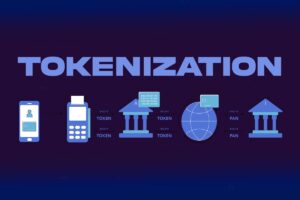In today’s digital landscape, ensuring data security is not just a best practice—it’s a necessity. As organizations store increasing amounts of sensitive information, protecting that data becomes paramount. As a leading CRM platform, Salesforce offers various mechanisms to secure sensitive data, and one of the advanced techniques is Apex Tokenization. This blog will explore tokenization, how it works in Salesforce, and the best practices for securely implementing it.
What is Tokenization?
Tokenization involves substituting sensitive data with a non-sensitive identifier, a token. These tokens are unique identifiers that retain essential information without exposing the actual data. For instance, a randomly generated token can be used rather than storing a customer’s credit card number directly. This process protects the original data, making it harder for unauthorized parties to access sensitive information.

Benefits of Tokenization
Tokenization offers several significant benefits for organizations:
- Enhanced Security: Tokens are meaningless outside their intended system, significantly reducing the risk of data breaches.
- Compliance: Tokenization helps businesses meet regulatory requirements like PCI DSS (Payment Card Industry Data Security Standard), GDPR (General Data Protection Regulation), and HIPAA (Health Insurance Portability and Accountability Act), ensuring that sensitive data is protected.
- Scalability: Tokens can be used across multiple systems to maintain data integrity without compromising security.
Tokenization in Salesforce
Salesforce provides a robust platform for implementing tokenization within your Apex code. While Salesforce does not offer native tokenization APIs, developers can integrate external tokenization services or create custom solutions using Apex. This flexibility allows businesses to ensure their data is protected while still benefiting from Salesforce’s powerful CRM capabilities.
Key Use Cases for Tokenization in Salesforce
- Payment Information: Replace credit card details with tokens to reduce the risk of data breaches.
- Personally Identifiable Information (PII): Tokenize sensitive customer data, such as Social Security Numbers, to protect individual privacy.
- Data Sharing: Share tokens instead of actual data across systems to maintain confidentiality.
Implementing Tokenization in Apex
Here’s a step-by-step guide to implementing tokenization in Apex:
1. Define Custom Metadata or Custom Settings
Use Custom Metadata or Custom Settings to store configurations like tokenization keys or API endpoints for external tokenization services.
2. Create an Apex Class for Tokenization
Develop a utility class to handle tokenization and detokenization logic. Below is an example:
public class TokenizationUtil {
// Method to convert sensitive data into a secure token
public static String generateToken(String inputData) {
// Replace with actual tokenization process or external service call
return EncodingUtil.base64Encode(Blob.valueOf(inputData));
}
// Method to reverse the tokenization and retrieve original data
public static String retrieveOriginalData(String token) {
// Replace with actual detokenization logic or external service call
return Blob.valueOf(EncodingUtil.base64Decode(token)).toString();
}
}
3. Secure Data During Transit and Storage
Always ensure data is encrypted during transmission by using HTTPS endpoints. Additionally, it securely stores tokens in Salesforce, leveraging its built-in encryption capabilities to protect sensitive information.
4. Test Your Tokenization Implementation
Write comprehensive unit tests to verify tokenization logic. Ensure coverage for edge cases, such as invalid input data or service downtime.
@IsTest
public class TokenizationUtilTest {
@IsTest
static void testTokenizationProcess() {
// Sample data to validate the tokenization and detokenization flow
String confidentialData = 'Confidential Information';
// Converting the sensitive data into a token
String generatedToken = TokenizationUtil.tokenize(confidentialData);
// Ensure the token is not the same as the original sensitive data
System.assertNotEquals(confidentialData, generatedToken, 'The token must differ from the original data.');
// Reversing the tokenization process to retrieve the original data
String restoredData = TokenizationUtil.detokenize(generatedToken);
// Verify that the detokenized data matches the original data
System.assertEquals(confidentialData, restoredData, 'The detokenized data should match the original information.');
}
}
Best Practices for Apex Tokenization
- Use External Tokenization Services: Consider integrating with trusted tokenization providers for high-security requirements. You could look into options like TokenEx or Protegrity.
- Encrypt Tokens: Store tokens securely using Salesforce’s native encryption capabilities to add an extra layer of protection.
- Audit and Monitor: Implement logging and monitoring for tokenization and detokenization processes to detect suspicious activity.
- Avoid Storing Sensitive Data: Where possible, replace sensitive fields with tokens instead of storing raw data in Salesforce.
- Regulatory Compliance: Ensure your tokenization strategy aligns with relevant compliance standards (e.g., PCI DSS, GDPR, HIPAA) for your industry.
Conclusion
Tokenization is a powerful technique for enhancing data security and maintaining compliance in Salesforce applications. You can safeguard sensitive information by implementing tokenization in your Apex code while enabling seamless operations across systems. Whether through custom logic or integrating external services, adopting tokenization is essential to a more secure and resilient Salesforce ecosystem.
Source: Read MoreÂ


